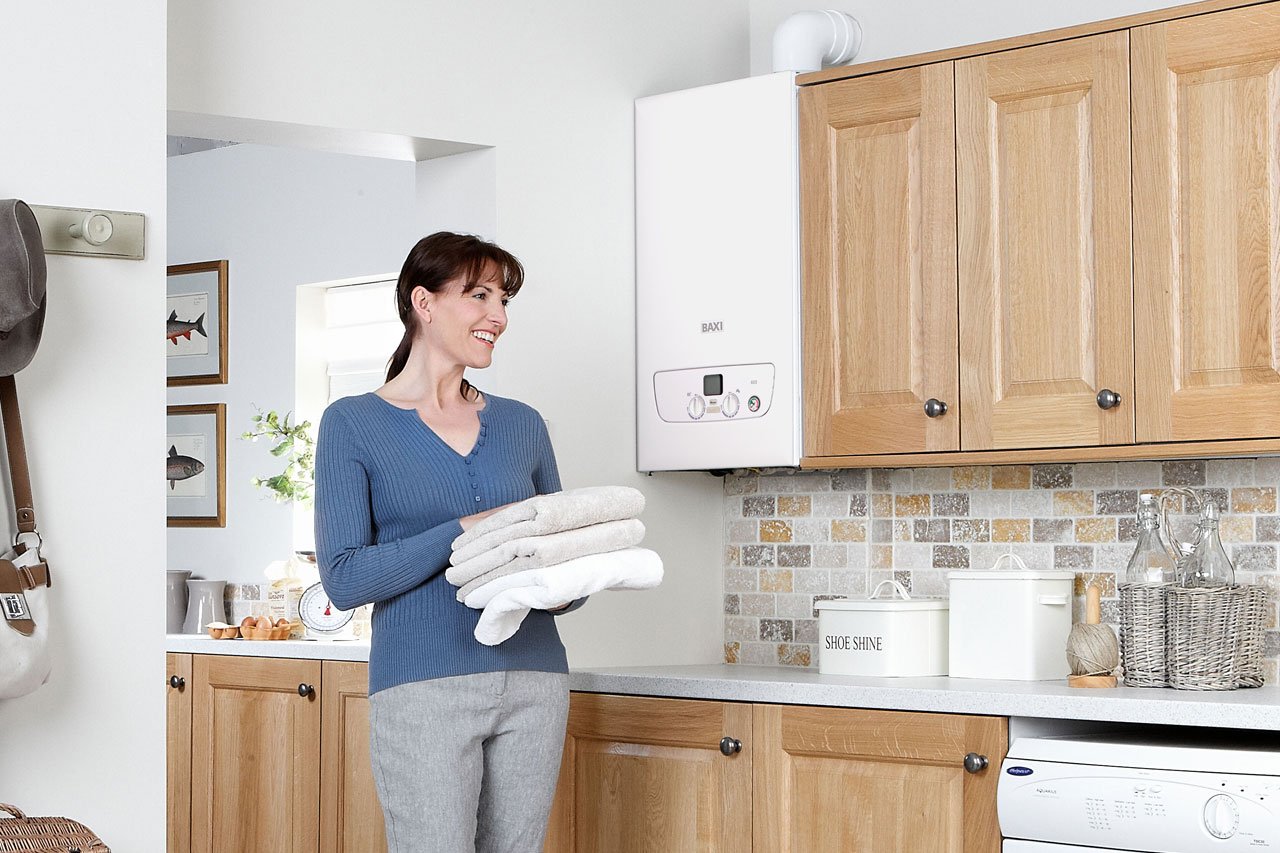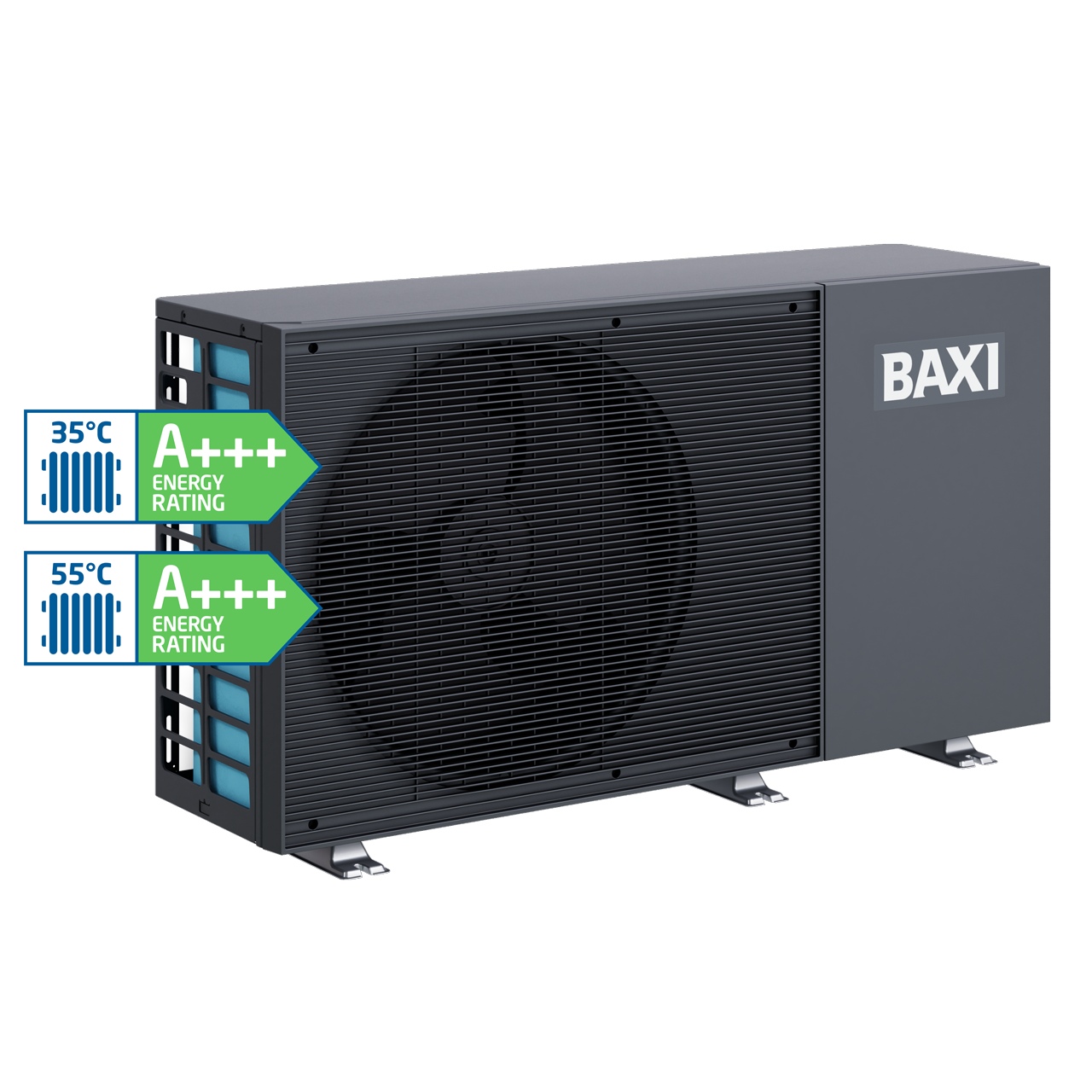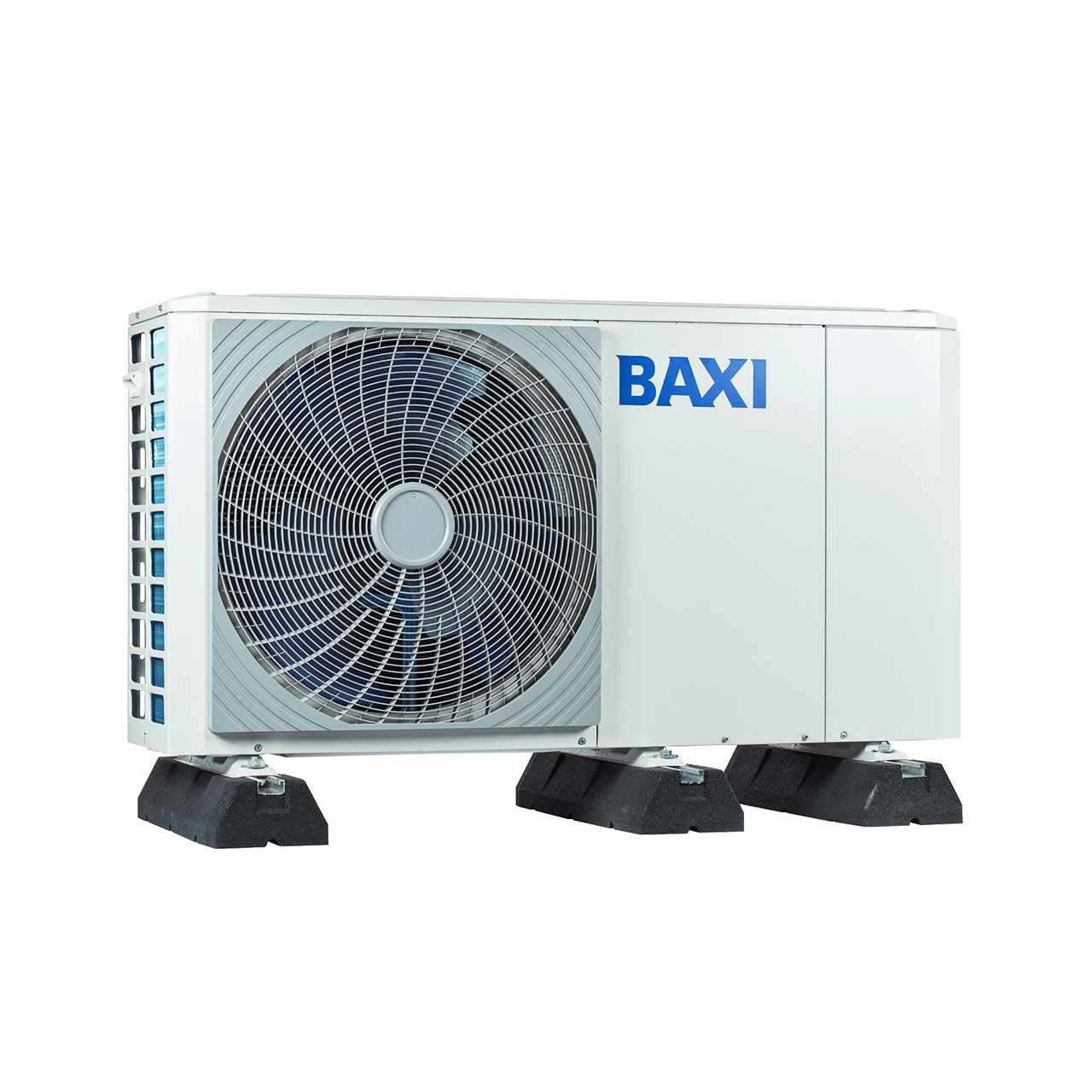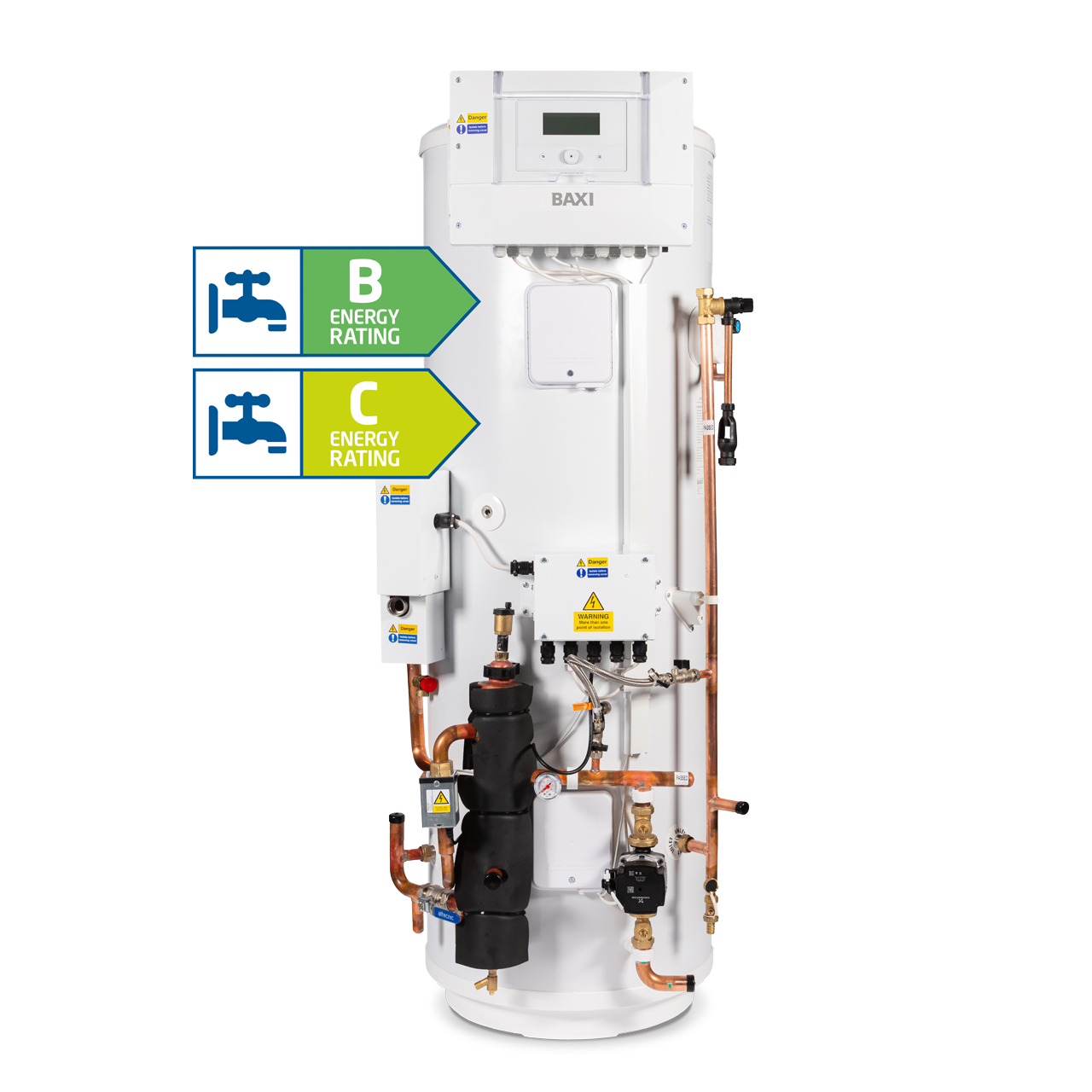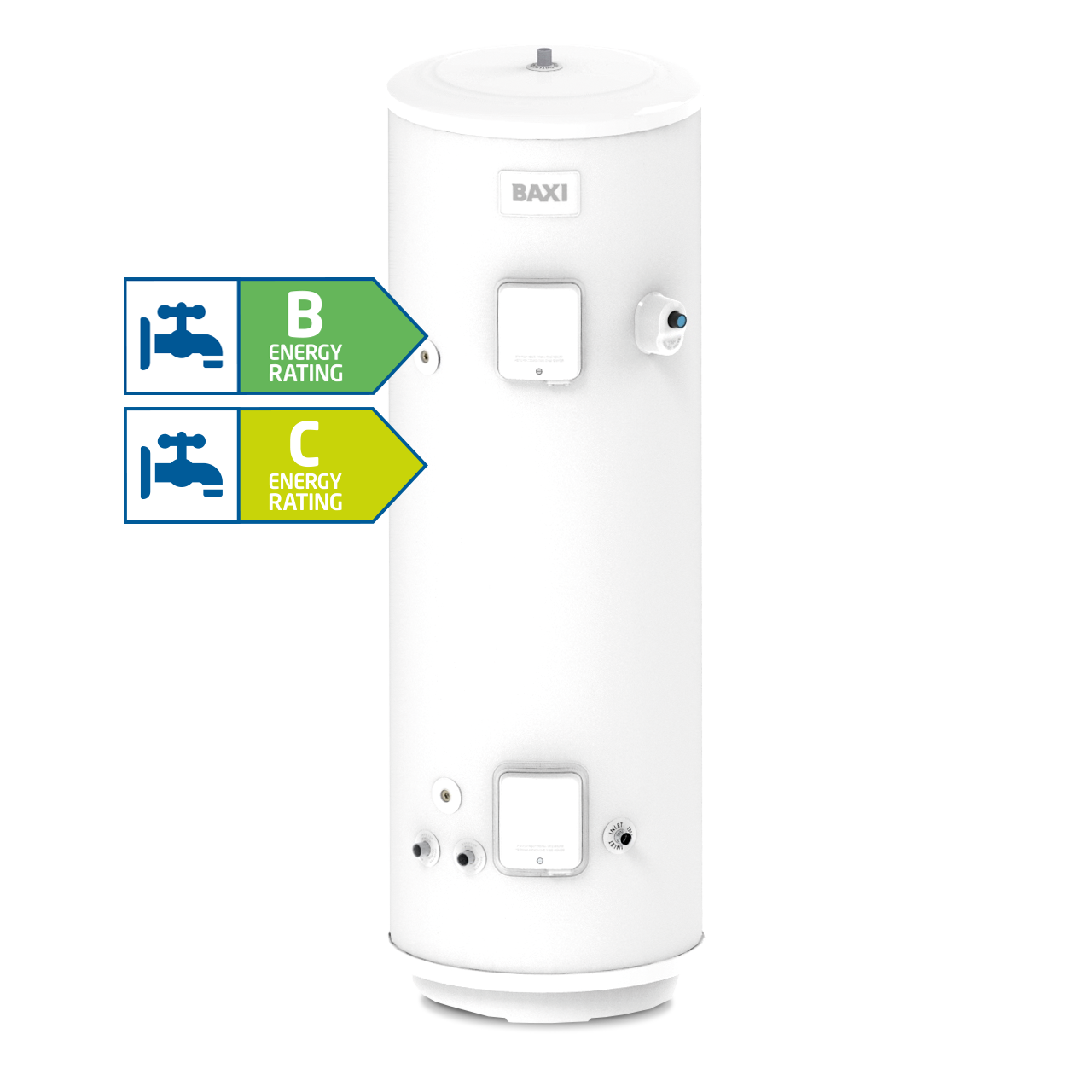Our monobloc range of Baxi Air Source Heat Pumps will deliver reliable, energy-efficient performance. Suitable for a wide range of properties.
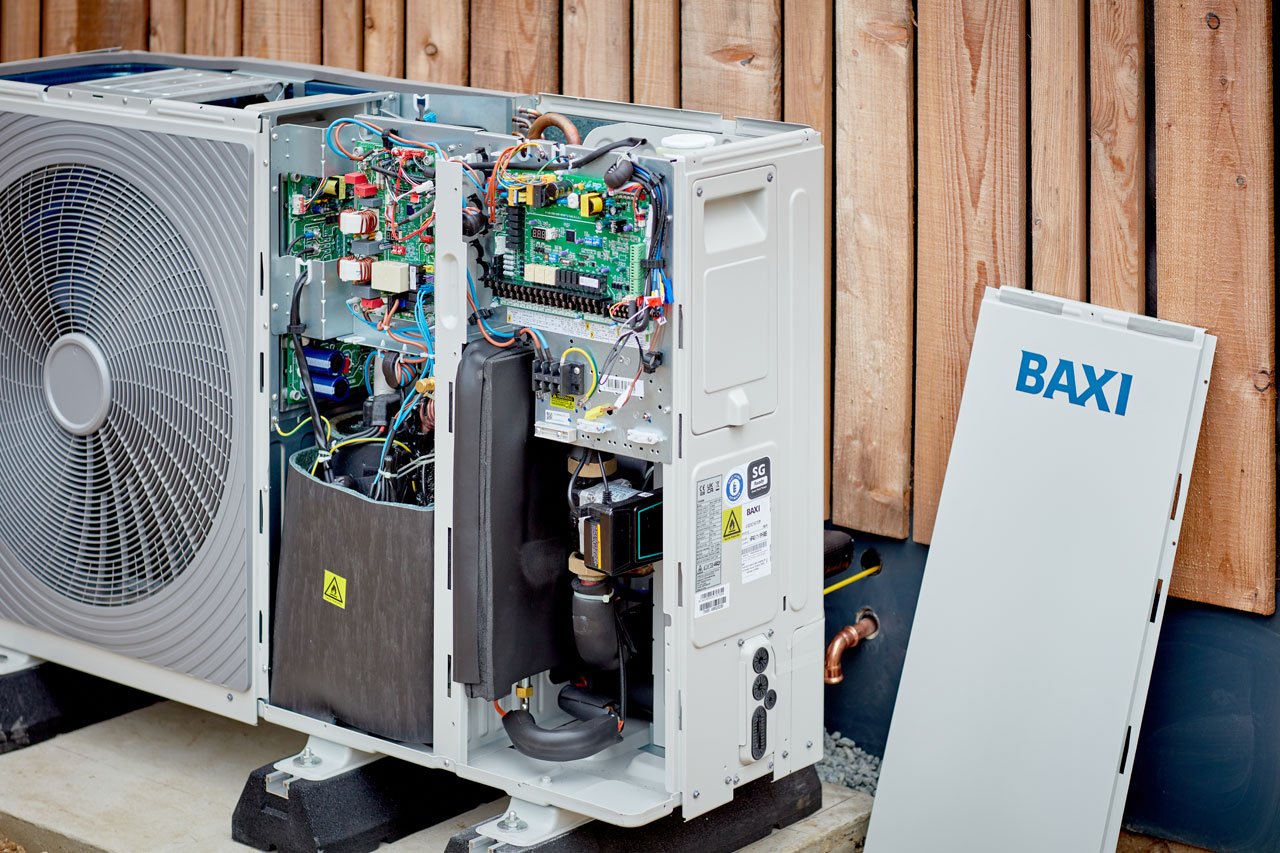
What is a heat pump?
A heat pump is a mechanical device that extracts heat that is present in the air, ground or water and boosts it so it can be used for heat and hot water in buildings.
As most of the heat comes from the environment and the electricity used to run the heat pump comes from our ever-decarbonising electrical grid, heat pumps are extremely green.
In the UK and Ireland, the three main types of heat pumps used are air source, ground source and water source heat pumps. Our commercial brand, Remeha, also has a range of gas absorption heat pumps.
Air source heat pumps (ASHPs) are generally preferred because they are more flexible to install. Ground source and water source heat pumps are generally more time consuming and difficult to install, because of the groundworks that are required.
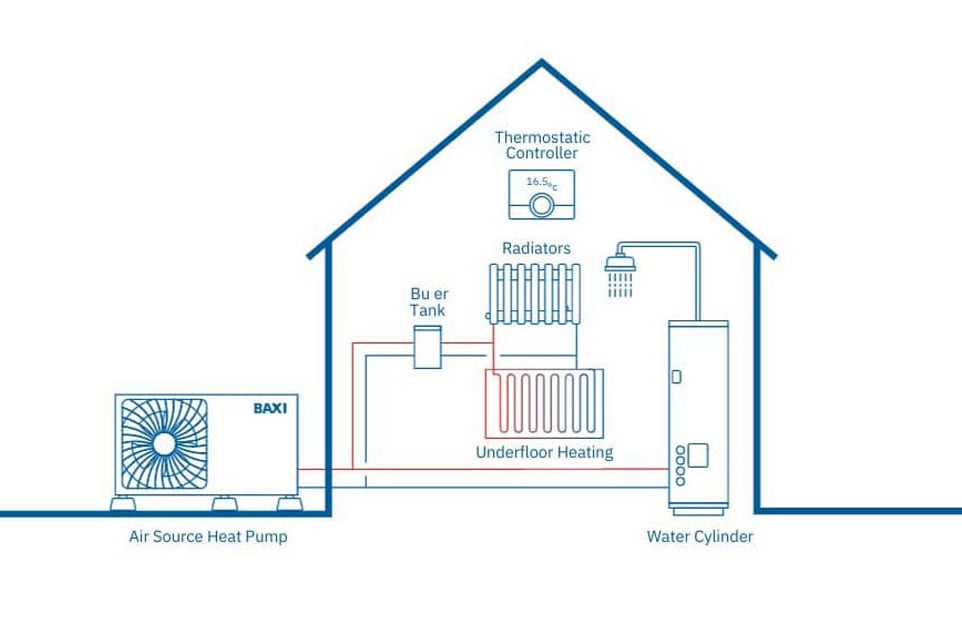
How does a heat pump work?
Air source heat pumps extract heat from the air to provide heating and hot water for residential and commercial buildings. The units are usually situated outside the building. Ambient air is pulled across a finned heat exchanger and the refrigerant inside is then superheated via an electrically driven compressor.
This heat is then transferred to water through a plate heat exchanger, and pumped throughout the building to radiators, under floor heating or hot water tanks - just like a boiler.
Find an Installer
Simply enter your postcode and find a local, trained, Gas Safe registered (where applicable) engineer to give you a no-obligation quote on a new boiler, cylinder or air source heat pump installation.
Benefits of Heat Pumps
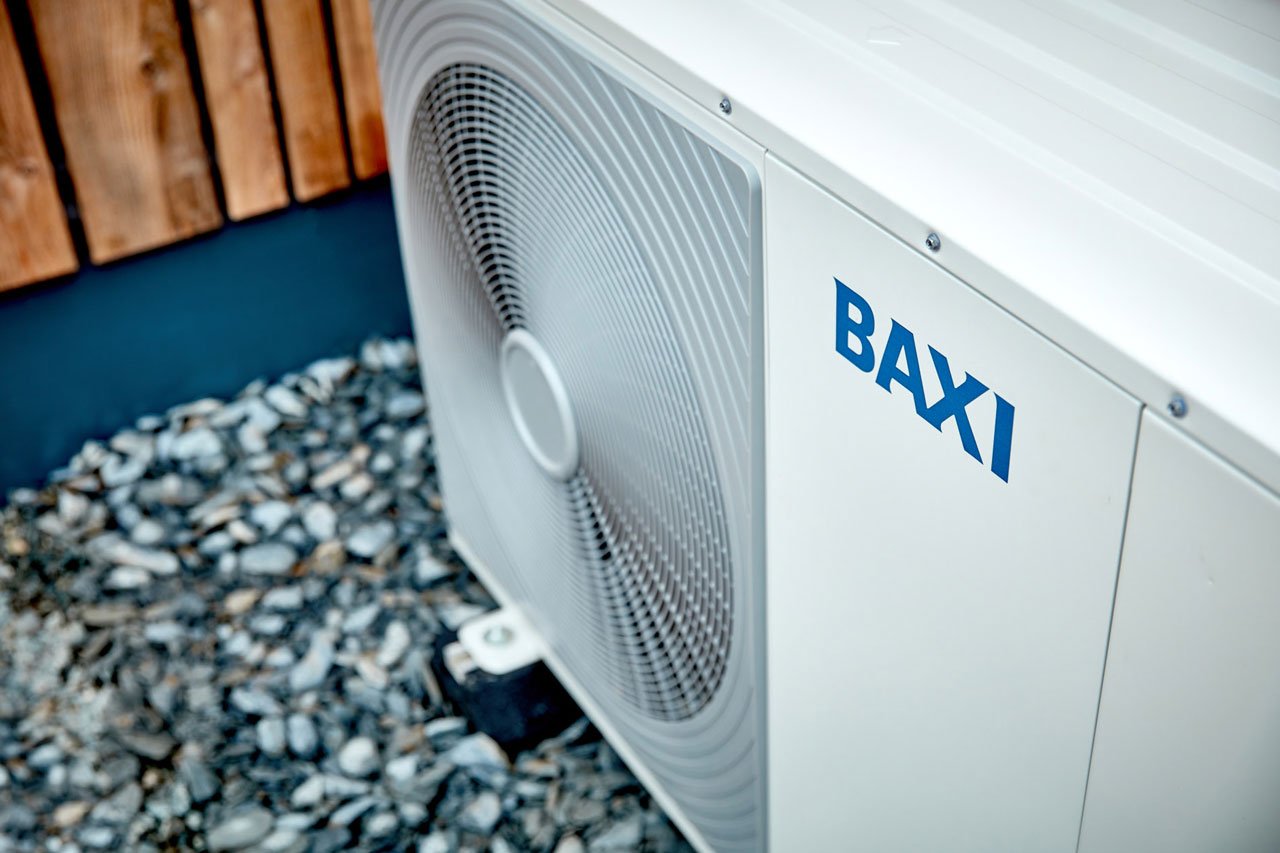
Grants for Heat Pumps
Related FAQs
Heat Pump Videos
Watch our Heat Pump playlist
Living with an Air Source Heat Pump
Your journey to a sustainable future starts here. When you install a Baxi Air Source Heat Pump, you can enjoy low carbon heating and hot water using sustainable energy drawn from the air outside your home. And it will keep working all year round, even when it's below zero outside.

